Project Subtitle:
Project Description:
"Up Hill House was designed and built by the homeowners, Larry and Jill Burks, in southern Washington County, New York. It produced more energy than used the first year of occupancy and is on track to do so again this year. Our house is at the heart of an effort to live a more sustainable lifestyle that also includes producing more of our own milk, eggs, meat, and produce on our small family farm. It is perhaps one of the best documented net zero houses on the web at uphillhouse.wordpress.com where we published our entire design and build process, as well as our experiences living in our new home. We also post all our energy, water and temperature data monthly at netplusdesign.com, a site we built specifically to share our data.
When we became engaged we decided we wanted to leave the city to build a small, sustainable home in the country. We knew we wanted good southern exposure for passive heating and PV potential, and soon found the perfect spot. Initial plans explored utilizing a Russian stove and lots of mass, but further research led us to discover super-insulated homes with high-performance windows and tight air sealing. Carter Scott’s homes in Massachusetts convinced us that net zero was the way to go. Soon thereafter we discovered BuildingScience.com and GreenBuildingAdvisor.com and the wisdom of Joseph Lstiburek and Martin Holladay.
We wanted a efficient, simple and modern space. Each floor is 600 sf (interior). We included a walkout basement to take advantage of the slope. The main level includes the kitchen, dining and living in one open space. A small office and pantry are located on the north side. Upstairs includes two bedrooms with walk-in closets and one full bath.
Larry did the preliminary energy calculations, then brought in DEAP Group to run the numbers in the PassivHaus spreadsheet to see where there might be room for improvement. They made a number of recommendations that were implemented in the final design."
Building Type Summary:
Address:
Elevation:
Lat. / Long.:
Location Type:
Köppen Climate Type:
Climate Region:
Solar Insolation:
Annual HDD :
Annual CDD:
HDD Base Temp:
CDD Base Temp:
Occupancy Type and Details:
Occupied full-time by the two owners.
Conditioned Floor Area:
Conditioned Building Volume:
Multiple buildings?:
Historic?:
Completion date:
Materials:
"Trees removed from site were milled for future barn framing, house
stairs and trim. The remaining hardwoods were bartered as firewood.Zero VOC paints (interior)1000 gallon rain water storage tankLow-flow plumbing fixturesEnergy efficient appliancesLED & CFL lightingLocally harvested and milled Brown Maple interior floors"
HERS Index:
Energy Star Score:
Annual renewable energy generated:
Electric Utility Company:
Electricity amount (imported from grid):
Electricity amount (credited or exported to grid):
Net electricity usage (purchased electricity):
Subslab assembly:
(3 layers of 2″ XPS)
Foundation wall assembly:
(2″ EPS + 9″ dense pack cellulose)
Above grade wall assembly:
(12″ of dense pack cellulose)
Flat attic assembly:
2x10 rafters(24″ of loose blown cellulose)
Door Area:
Space heating - Manufacturer & Model:
Space cooling - Manufacturer & Model:
Domestic hot water - Manufacturer & Model:
Domestic hot water - capacity:
Ventilation - Manufacturer & Model:
Total Cost of Project:
NESEA Awards:
Zero Net Energy Building Award 2014
Energy Use and Production Documentation:
Subslab R-value:
Foundation wall R-value:
Above grade wall R-value:
Flat attic R-value:
Average window U-factor:
Solar Heat Gain Coefficient:
Door U-Factor:
Cost per square foot of Conditioned Space:
Air Changes per hour, ACH50:
Project Photos:
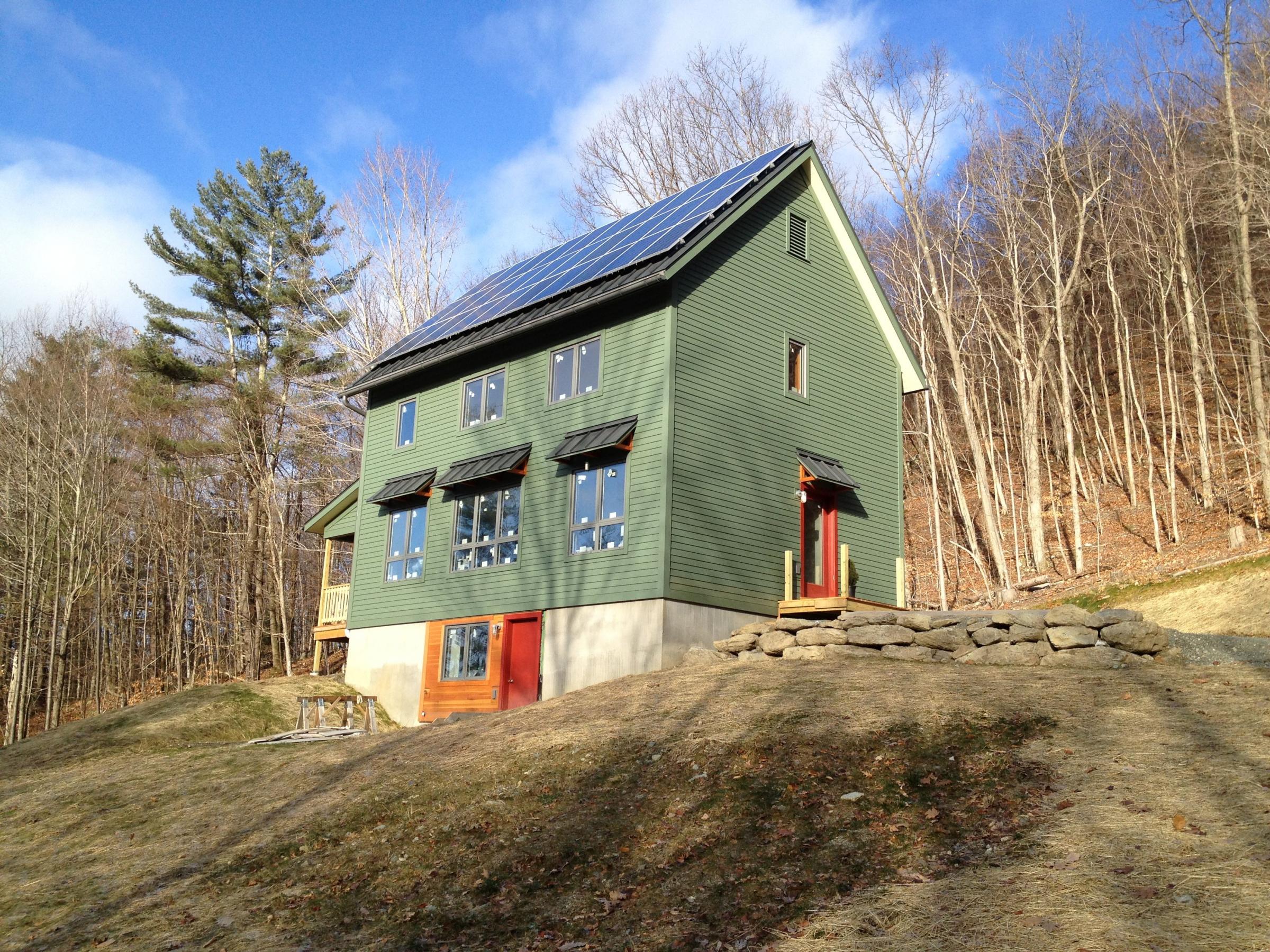
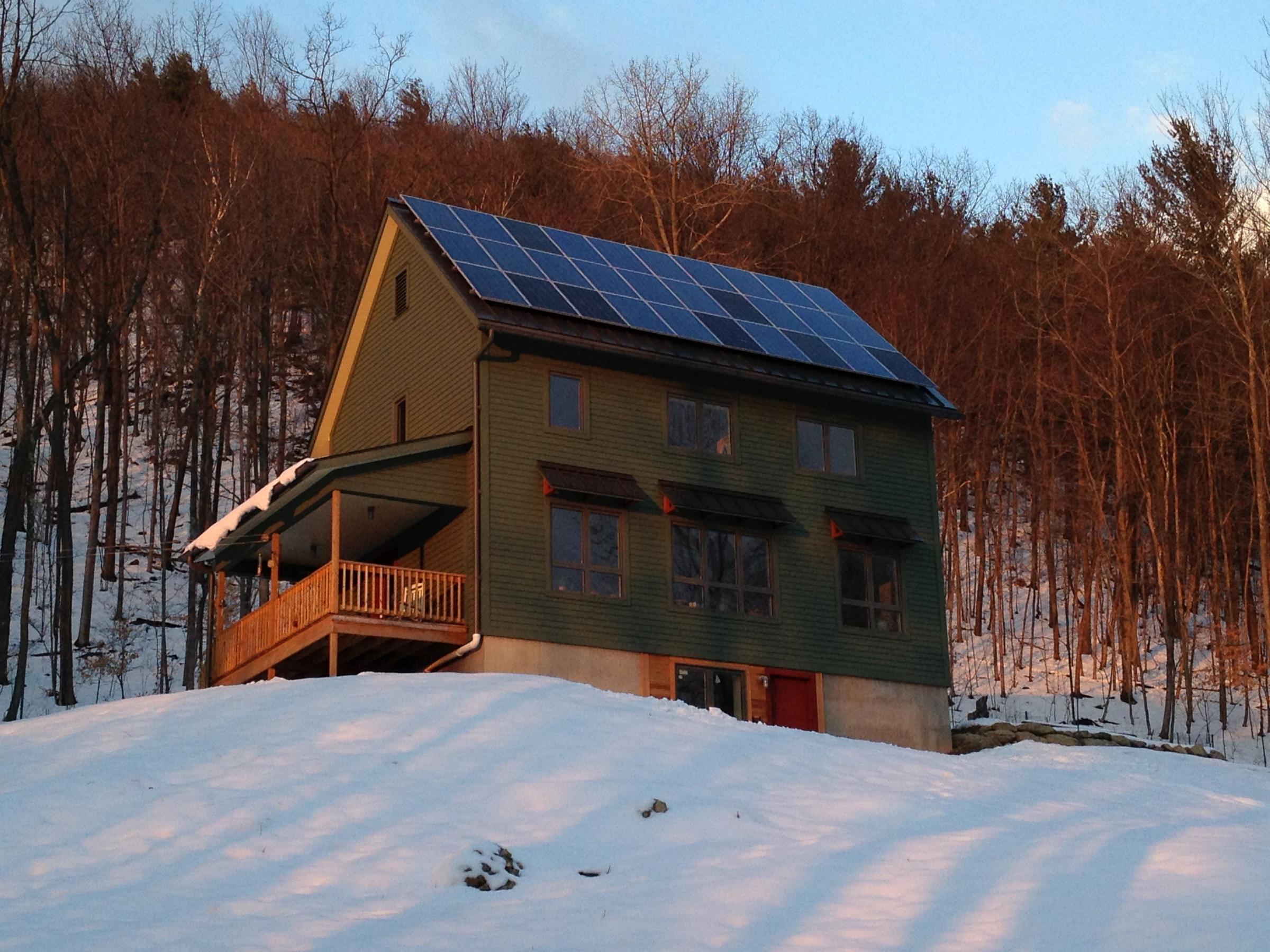
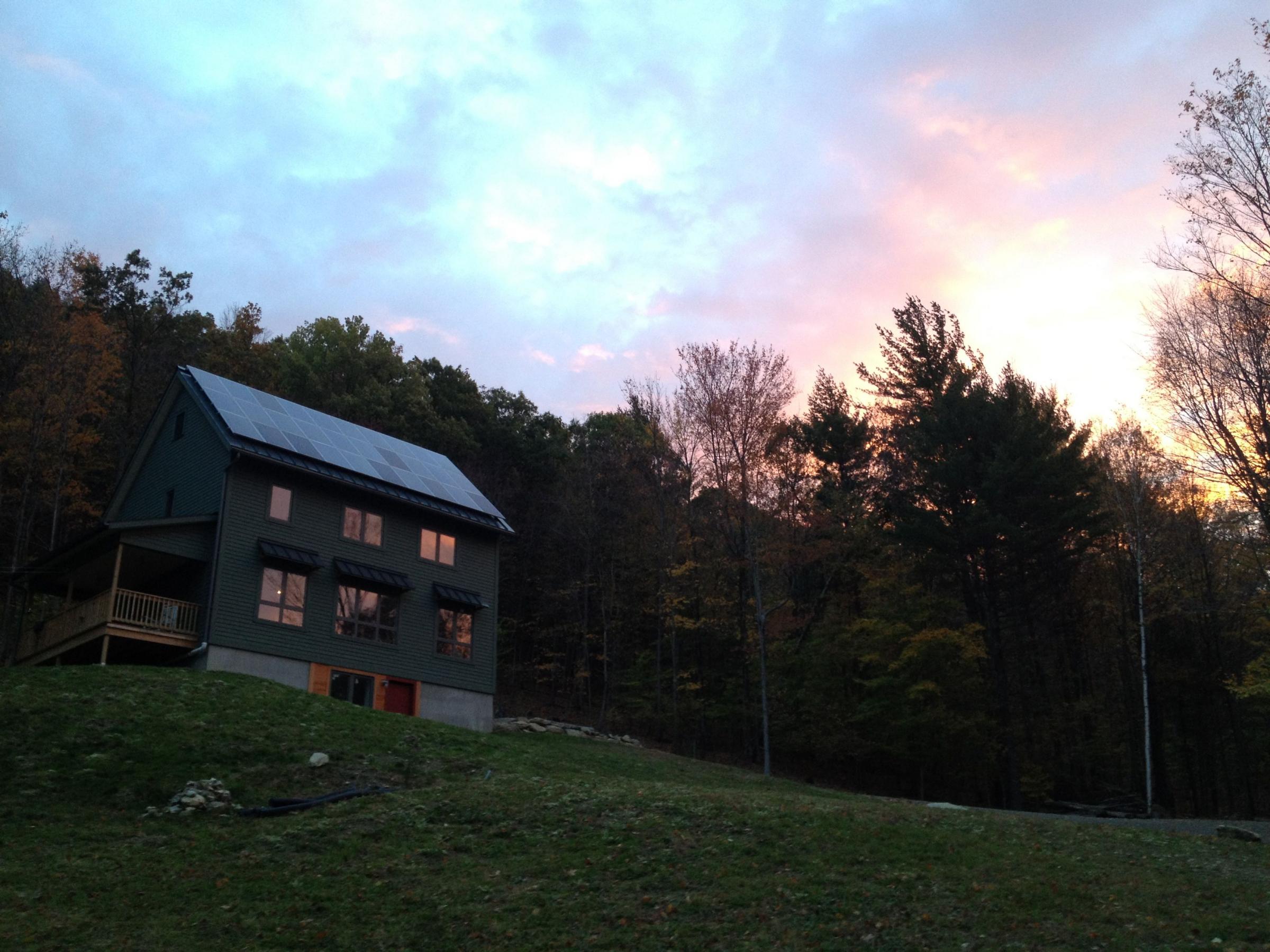
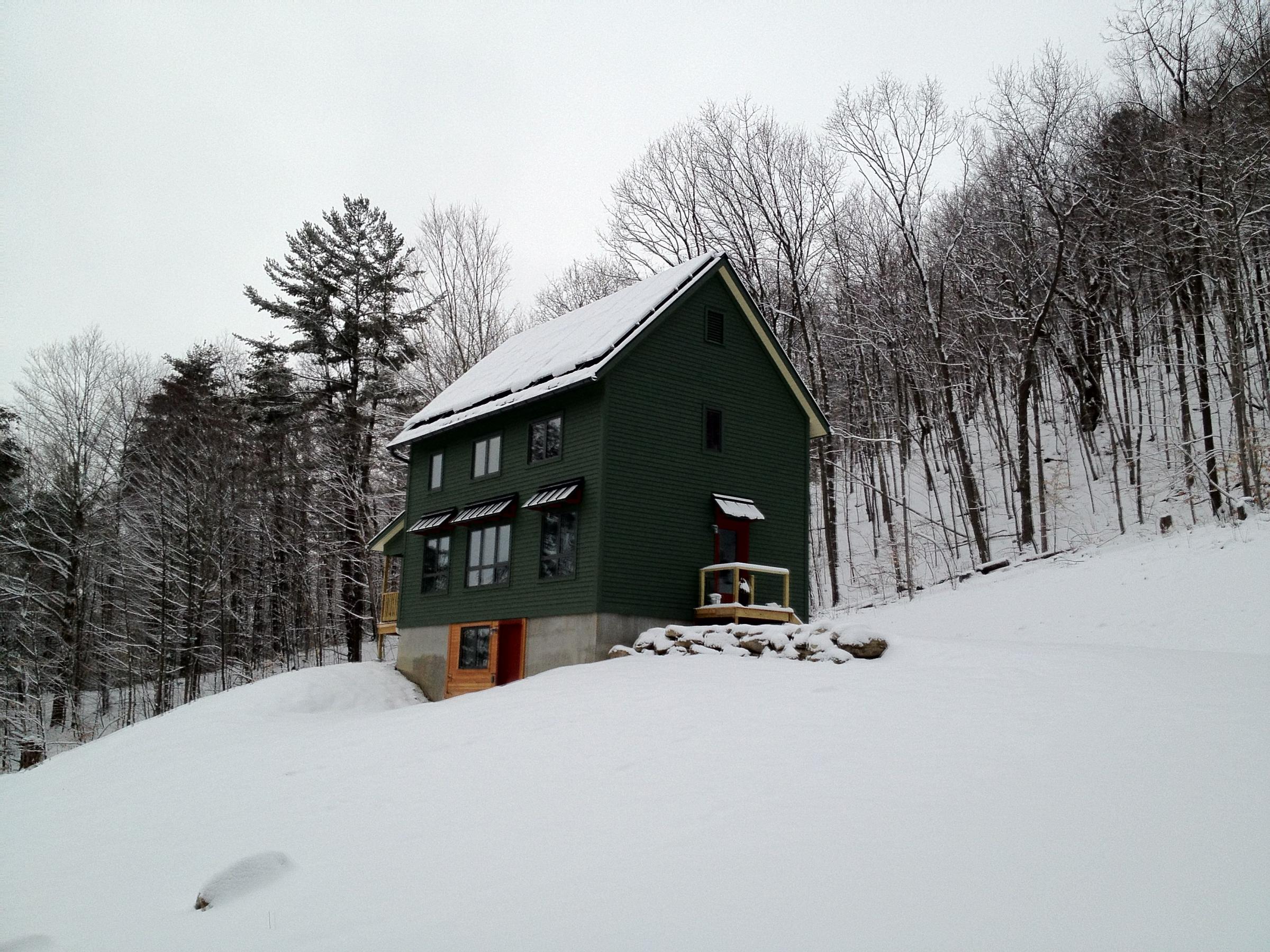
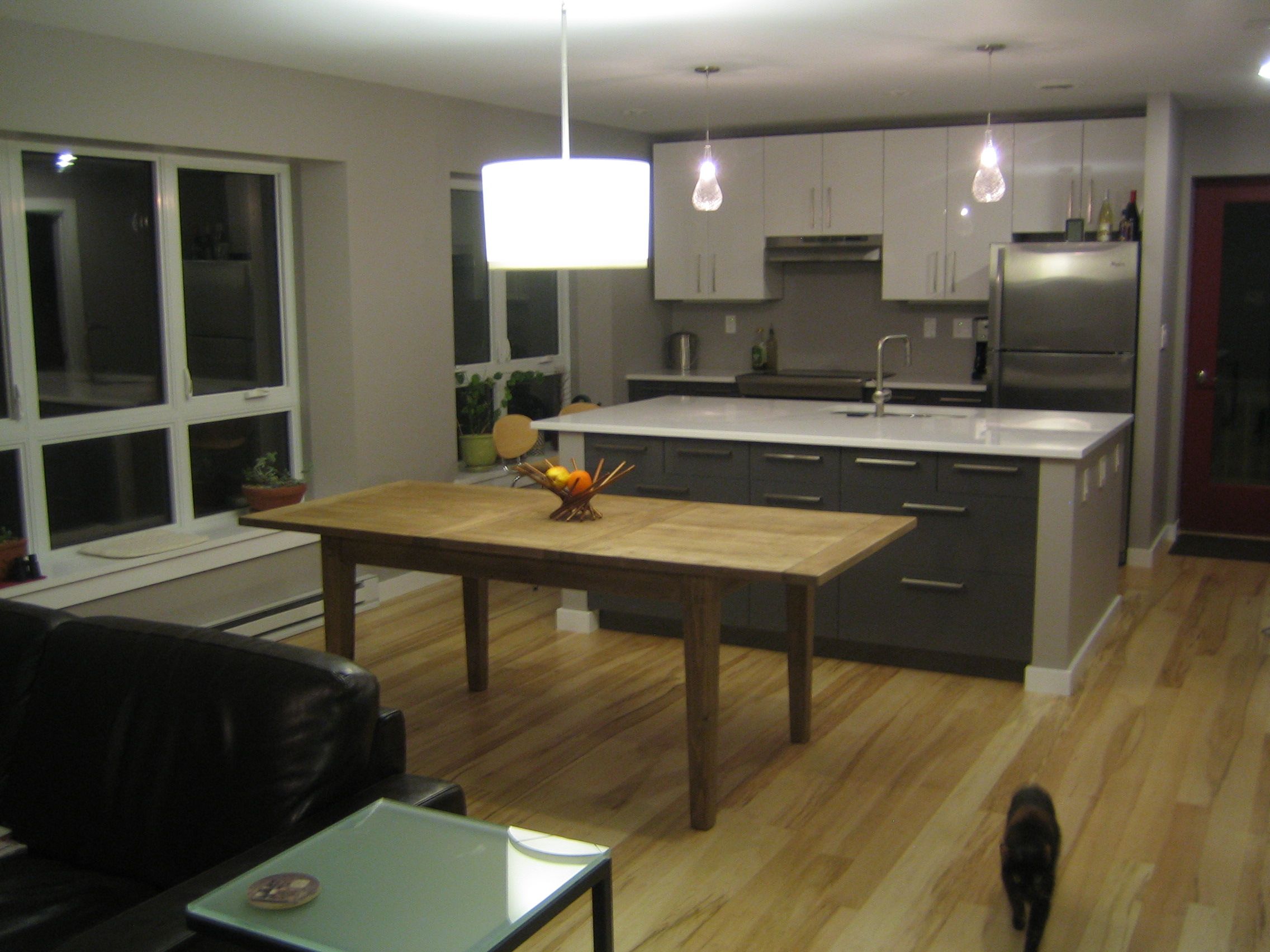
Number of Bathrooms:
Renewable Energy Sources:
Summary of enclosure strategy/description:
Walls - DBL wall, 2x6 and 2x4 framing, with 12" of dense pack cellulose, Attic - 2x10 rafters with 24" of loose blown cellulose
Roof Assembly:
2x10 rafters
Window Description:
Accurate Dorwin triple-glazed fiberglass windows
